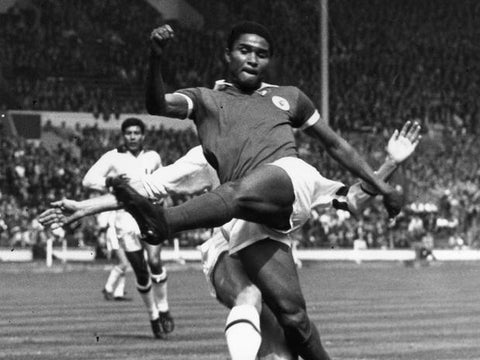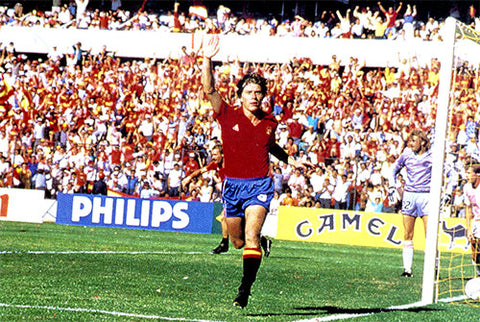Eusebio da Silva and Emilio Butragueño have more in common than we might initially think. They were both great footballers, although public recognition was not equal. Obviously, historically, they cannot be compared. However, their performances in the World Cups are comparable. Both Eusebio and Butragueño managed to score four goals in a World Cup match. The Portuguese did so in England in 1966; the Spaniard did so in Mexico in 1986. Today, July 15, 2018, Portugal and Spain face each other in the World Cup. Therefore, it is a good time to remember two of the greatest World Cup achievements of both countries.
Eusebio da Silva, also known as "The Panther," is considered by many to be the greatest player in Portuguese history. The striker is also one of the great legends of Benfica and European football. He never won the titles with his national team that he did with the Lisbon club. A multitude of league and cup titles dominate his list of achievements, most notably the 1962 European Cup and the 1968 Ballon d'Or. His finest moment with the national team came between those two major trophies, at the 1966 World Cup in England.

To top it all off, Eusebio's greatest moment with his national team came on July 23, 1966, at Goodison Park, Liverpool. Portugal and the surprising North Koreans faced off in a quarterfinal that promised to be comfortable for the Iberian team. However, this was not to be. The Asian team led 3-0 after just 25 minutes of play. What promised to be a beautiful David-versus-Goliath victory was not to be. Eusebio made it his mission to cut short the Koreans' dream by scoring two goals before halftime, giving a glimpse of what was to come in the second half.
After the break, "La Pantera" continued his performance and scored two more goals to turn around a spectacular match in which Portugal had been on the ropes. In the final stretch, forward José Augusto scored the decisive 5-3. This match will forever be remembered for a combative North Korea that came close to defeating one of the best teams in the world. The match also produced one of the greatest World Cup achievements: an imperial Eusebio, who scored four goals to turn the match around and lead his team to a third place finish in the World Cup, their highest ever finish.
Almost 20 years later, and more than 8,000 kilometers away, Emilio Butragueño, a legend of Real Madrid and the Spanish national team, achieved a similar feat. It was June 18, 1986, and Spain was facing Denmark in the round of 16 of the World Cup at the Corregidora Stadium in Querétaro. The Danish national team was one of the best in that World Cup; the Nordic team was led by Michael Laudrup, who could do nothing against the claws of the "Buitre." The budding Real Madrid star was about to reveal himself to the world.

Emilio Butragueño did something similar to what Eusebio had done 20 years earlier against North Korea. The match unfolded in a similar fashion, as Denmark took the lead just as the Asians did, but this time, the advantage was a single goal. Shortly before halftime, Butragueño scored the equalizer, which also served as a psychological goal, as the Danes were 1-0 up at the break. When the players returned from the locker room, "El Buitre" scored to make it 2-1 for Spain. During the Real Madrid player's display, Goikoetxea appeared to make it 3-1. This incursion by his teammate didn't faze Butragueño, who later scored the 4-1 and the final 5-1. This feat by the diminutive Real Madrid player placed him on the same level as a legend like Eusebio.
At first glance, Eusebio and Butragueño don't have many similarities. However, "La Pantera" and "El Buitre" are part of World Cup history and their national teams' history, as they achieved the same feat: scoring four goals in a World Cup finals match. Twenty years separate two feats that will always be remembered by the fans of both countries, even if greater milestones have since been achieved. Portugal and Spain face each other in the group stage of the World Cup in Russia with these two legends in their minds. This is because "La Pantera" and "El Buitre" are part of World Cup history.
Written by Javier Siñeriz
Twitter - https://twitter.com/javier_sineriz
Instagram - https://www.instagram.com/javier_sineriz

